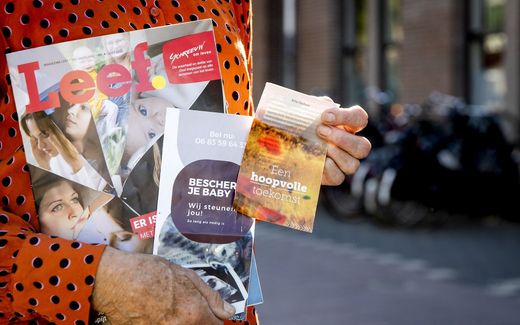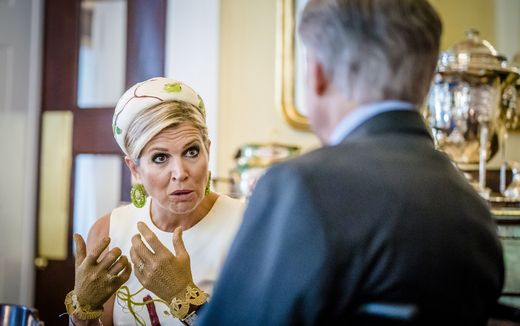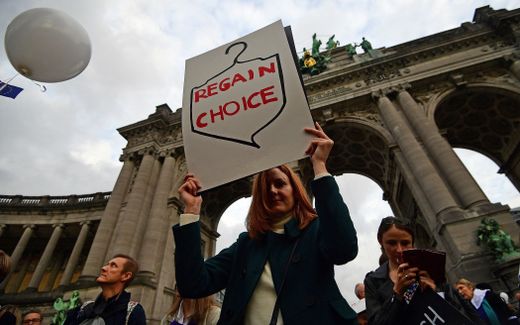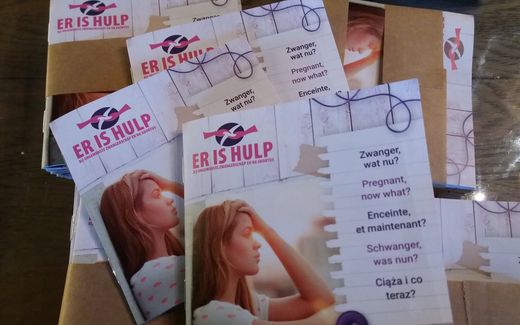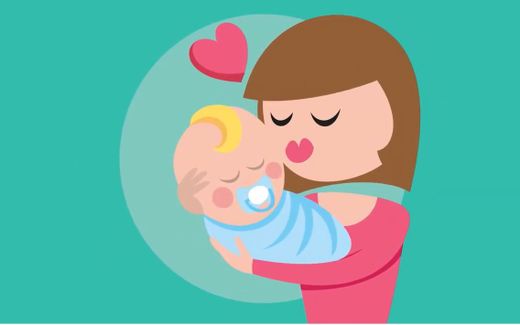Dutch cabinet treats abortion as a human right
09-02-2023
Western Europe
Coen Hermenet, RD
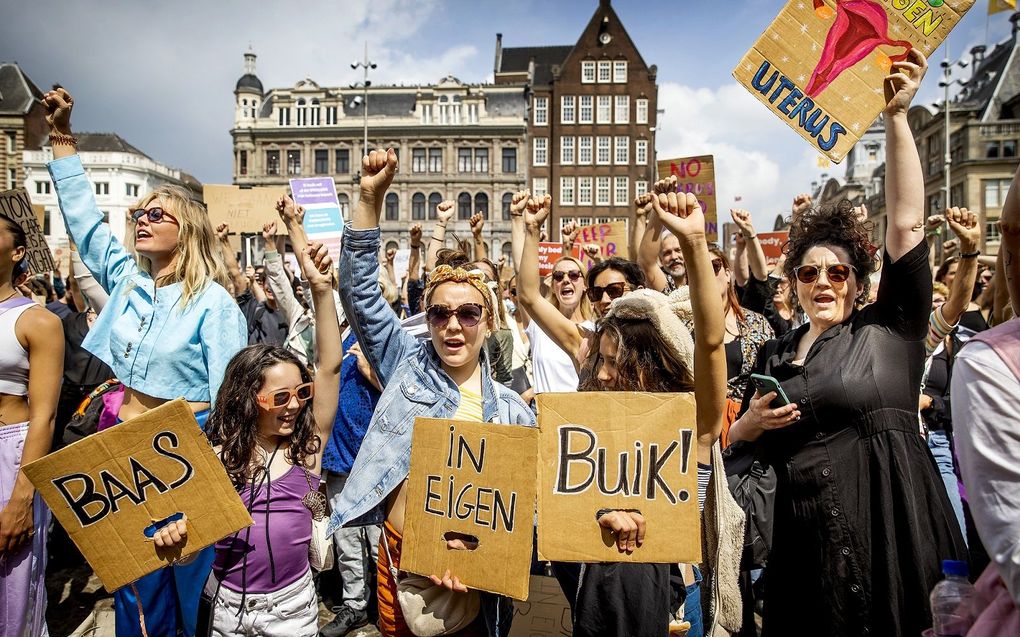
Dutch protest for the right to abortion. The boards read: "Boss in own belly." Photo ANP, Koen van Weel
Western Europe
Although abortion is not a human right, it is mentioned as such. The Dutch cabinet does this too. The Dutch Reformed party SGP leader Kees van der Staaij sees a creeping process and speaks of "an increasingly radical tone".
"Access to abortion is a human right", the title of an initiative note published by D66 in November last year reads. It says: "This note advocates the international establishment that abortion is a human right." In other words, the title refers to a plea, not a fact. Former Labour minister Ploumen also called access to safe abortion "simply a human right" in 2015.
The current government also takes that line. A parliamentary letter in late November called so-called sexual and reproductive health and rights (SRHR) human rights. The government explicitly includes (access to) abortion among SRHR.
Pressure
As an example of "increasing pressure" on those human rights, the letter cites the US Supreme Court's decision to strike down abortion as a federal right. In short: it looked very much as if ministers Dijkgraaf (Education, Culture and Science, OCW), Hoekstra (Foreign Affairs, BZ) and Schreinemacher (Foreign Trade and Development Cooperation) were declaring abortion a human right.
Does the cabinet see abortion indeed as a human right? That is the question the Dutch daily Reformatorisch Dagblad asked the ministries of BZ and OCW. "Dutch policy assumes that the right to life is a fundamental human right, just like the right to health, women's rights and sexual and reproductive rights," they revealed. So yes, the government treats abortion as a human right, even though it is not.
Success
This is a success for the liberal D66 party. In the aforementioned note, the party denounced a statement by Hoekstra, who wrote that abortion is "not a right". "This is a misconception," D66 said. "The Netherlands should consider (access to) abortion as a fundamental right in its foreign policy." With the ministries' response to Reformatorisch Dagblad, there can no longer be any ambiguity: the cabinet is already doing this.
Abortion as a human right would be the world upside down, Kees van der Staaij. He is the leader of the Reformed party SGP. "Because traditionally, the right to life, which is also about unborn life, is very fundamental", he explains.
Van der Staaij speaks of "a creeping process" and "an increasingly radical tone" from the cabinet. He fears the cabinet will respond positively to the D66 note's desire to include abortion in the EU Charter of Fundamental Rights.
The SGP leader hopes for more backlash from the Christian parties in the cabinet. "Because slowly but surely, it is going in the wrong direction. More and more sharply, people who think differently are brushed aside; more and more, abortion is spoken about as a right. And ever more one-sidedly, the state of human rights is interpreted as being in favour of the absolute right to abortion." He does not actually see the backlash he desires in cabinet letters "in any way. Surely these have a fairly solid liberal colour, which is also defended and advocated by a Christian Democratic minister like Hoekstra."
Symbolic
If abortion becomes a human right, it is "certainly much more than symbolism", Van der Staaij argues. First of all, he says, it puts pressure to broaden underlying legislation. Internationally, too, he sees consequences. "It means that European diplomats will start addressing countries: this is how it should be, and this is how it should be." And as abortion becomes more firmly established internationally, it becomes increasingly difficult for countries trying to curb or tighten abortion practice, he says. Then there could be lawsuits because restrictions would violate international law.
Traditionally, a characteristic of human rights was that they must be about things that are "undisputedly universal", says Van der Staaij. "If we include these kinds of more political points under human rights, we undermine the human rights commitment. Abortion is serious enough, but it also damages your own international credibility on your commitment to human rights if you allow the list to become so polluted."
The SGP member speaks of "a very one-sided, politically coloured commitment by the cabinet". In its response to the Reformatorisch Dagblad, the cabinet refers to, among other things, a resolution of the European Parliament and the Convention on All Forms of Discrimination Against Women (CEDAW). These are not legally binding, he noted. "So it is really a certain radical interpretation of existing international law that the cabinet is already following and advocating to put a liberal practice as firmly as possible on a legal footing."
Treaty amendment
Van der Staaij points out that there are international rules stating that countries decide on abortion regulations themselves; for example, the Beijing Declaration and Platform for Action. "Those are binding international agreements that countries can decide on abortion regulations themselves. And I don't hear anything about that from the cabinet."
Hoekstra informed the House that the cabinet would look further into the initiative's feasibility to include "the right to abortion" in the EU charter. Those in favour include French President Macron and a majority of the EU parliament. Hoekstra also stated that this would require a treaty amendment. To achieve that, all EU member states must agree.
This article was translated by CNE.news and published by the Dutch daily Reformatorisch Dagblad on February 4, 2023
Related Articles

